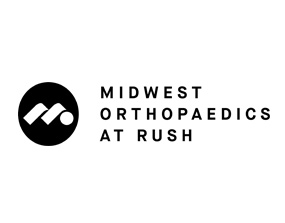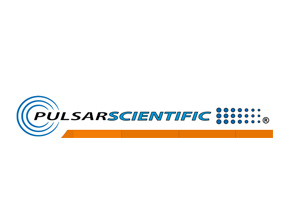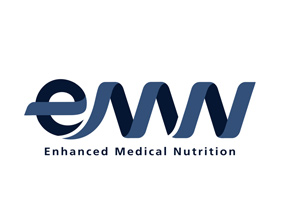 Eating a performance-enhancing diet isn?t easy, and?for many athletes and active people, nutrition is their?missing link. If that?s your case, here are a few ABCs to?get you started on the path to winning with good nutrition.?
Eating a performance-enhancing diet isn?t easy, and?for many athletes and active people, nutrition is their?missing link. If that?s your case, here are a few ABCs to?get you started on the path to winning with good nutrition.?
Always eat breakfast; it?s the meal of champions! Within three?hours of waking, fuel-up for a high-energy day. Not hungry in?the morning? Trade evening snacks for a nice breakfast the next?day.
Breakfast of champions? I vote for whole grain cereal + milk +?fruit?an easy, wholesome, carb-protein combination.?Carbohydrates are essential to fuel-up and refuel your muscles.?Do not ?stay away from? pasta, potato, bread, bagels and other?carbs that have wrongly been deemed ?fattening.? Excess fat gets?easily converted into body fat, but not carbs.
Dehydration needlessly slows you down, so plan to drink extra?fluids before you exercise. The kidneys require about 45 to 90?minutes to process fluids. Allow time to tank up, eliminate the?excess, and then drink again pre-workout.
Energy bars are more about convenience than necessity. Bananas,
yogurt, fig cookies and granola bars offer convenient fuel at a?fraction of the price. But if you prefer the convenience of bars, try?Zing Bars (www.ZingBar.com). Yum!
Food is fuel?not the ?fattening enemy? as some weight conscious?athletes believe. If you obsess about food and weight,?find a local sports dietitian at http://www.SCANdpg.org.
Gatorade and other sports drinks are designed to be used?by athletes during extended exercise, not as a lunch or snack?beverage.
Hypoglycemia (low blood sugar, as characterized by light-headedness,
fatigue and inability to concentrate) is preventable.?To eliminate an afternoon energy lag/drop in blood sugar, enjoy a?hearty snack between lunch and dinner.
Iron-rich foods, needed to prevent anemia, include beef and?dark meat chicken (thigh, leg). If you eat neither of those, choose?iron-fortified breakfast cereals (Raisin Bran, Wheaties). Read?the cereal label, and note all natural brands (Kashi, granola) offer?little iron.
Junk food can fit into your sports diet in small amounts. That is,?you don?t have to have a ?perfect diet? to have a good diet. Target?a diet that is 90 percent quality foods and, if desired, 10 percent?foods with marginal nutritional value?sports drinks (refined?sugar), birthday cake, chips, etc..
Keep track of calories if you want to lose weight. You?ll reduce?body fat only if you create a calorie deficit. A popular website for?tracking food intake is http://www.fitday.com. Adding on exercise can?help with fat loss IF the exercise contributes to a calorie deficit.?(But the more you exercise, the more you might eat?)
Lifting weights is the key to building muscles. For energy to?lift weights, you need extra carbohydrates. To support muscular?growth, eat adequate (but not excessive) protein. Each muscle-building?meal should be mostly carbs, with a side of protein, as?opposed to mostly protein with minimal carbs.
Muscles store carbs as glycogen; glycogen depletion is?associated with fatigue. Along with each one ounce of glycogen,?muscles store about 3 ounces of water. Expect to gain two to four?pounds of (water) weight when you carb-load.
Never eat an untried engineered sports food before an?important competition. You may discover it settles poorly and?hurts your performance. The website of competitive events?indicate what foods and fluids will be available on the course.?Find out in advance, so you can experiment during training!
Olive oil is heart-healthy, reduces inflammation and helps?absorb vitamins A, D, E, and K. Although excess calories from?oil (and other fats) are fattening, a little bit of olive oil on salads?and with cooking adds taste and health benefits.
Protein is an important part of a sports diet, needed for recovery?from hard workouts. But protein should be the accompaniment?and carbs the foundation of the recovery meal. Make that a carb?shake with a little protein (not a protein shake with a little carb).
Quality nutrition is found in natural foods. Be sure there are?some apple cores and banana peels mixed in with the litter from?your engineered foods and energy bar wrappers?
Rest is an important part of a training program; your muscles?need time to heal. Plan one or two days with little or no exercise?per week. Expect to feel just as hungry on days with no exercise;?depleted muscles require extra food to refuel.
Sweet cravings are a sign you?ve gotten too hungry. Experiment?with doubling your breakfast and lunch (and halving your?dinner). You?ll have more energy, better workouts?and far less?desire for sweets.
Thinner does not equate to being a better athlete?if the cost of?being thin is skimpy meals and poorly fueled muscles. Focus on?being fit and healthy?not just sleek and slim (but starving).
Urine that is dark colored and smelly indicates you need to?drink more fluid. If you are well hydrated, you will eliminate pale colored?urine every 2 to 4 hours.
Vegetarian athletes who do not eat meat need to include a?substantial portion of plant protein at each meal. Peanut butter?on a bagel, hummus with pita, and beans in chili are just a few?suggestions.
Weight is more than a matter of will power; genetics plays a?role. Forcing your body to be too thin is abusive.
Xtra vitamins are best found the ?all natural? way: in dark?colorful vegetables such as broccoli, spinach, peppers, tomatoes?and carrots, or in fresh fruits such as oranges, grapefruit,?cantaloupe, strawberries and kiwi. Chow down!
Yes, even you can optimally fuel your engines. The trick is:?Don?t get too hungry. When too hungry, you?ll likely grab the?handiest (but not the healthiest) food around.
Zippy and zingy?that?s how you?ll feel when you fuel with
premium nutrition. Eat well and enjoy your energy!
Click here for full podcast playlist.












